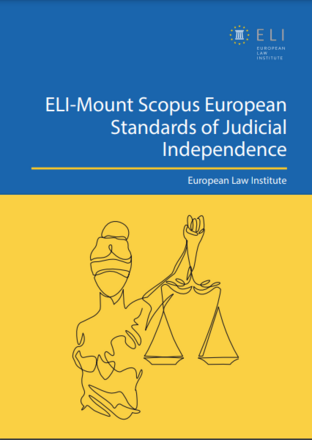
The ELI-Mount Scopus European Standards on Judicial Independence outline key principles to evaluate and promote judicial independence throughout Europe. These guidelines, intended for judges, civil society, and public authorities, are based on constitutional principles, international law, and judicial practices of liberal democracies. Their main objectives are to protect judicial independence, ensure impartial courts, and foster a supportive political and cultural climate that sustains democracy and the rule of law. The Standards are relevant for both stable democracies and nations facing democratic challenges, serving as a safeguard against political interference in judicial decisions. They emphasize the judiciary’s critical role in ensuring fair trials, safeguarding human rights, and maintaining efficient legal systems.
The Standards are anchored in the values of the European Convention on Human Rights (ECHR) and EU Treaties, offering a framework of 38 specific guidelines accompanied by commentaries. These guidelines address key areas, including the foundational principles of judicial independence, judicial governance, processes for appointments and promotions, ethical codes, and disciplinary measures. Importantly, the Standards aim to balance independence with accountability, ensuring that courts are protected from external pressures while remaining transparent and maintaining the integrity of the legal system.
Tags: Rule of LawThe content of this article can be used according to the terms of Creative Commons: Attribution-NonCommercial 4.0 International (CC BY-NC 4.0) . To do so use the the wording "this article was originally published on the Resource Centre on Media Freedom in Europe" including a direct active link to the original article page.

